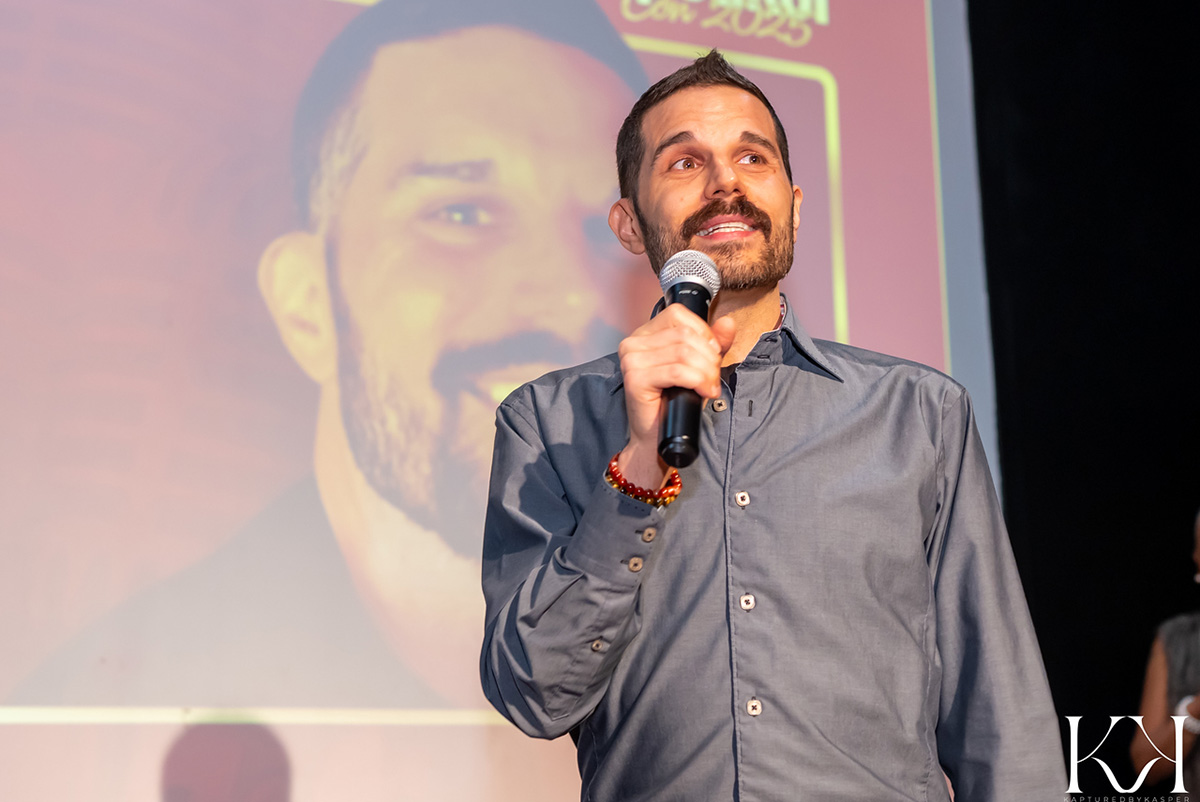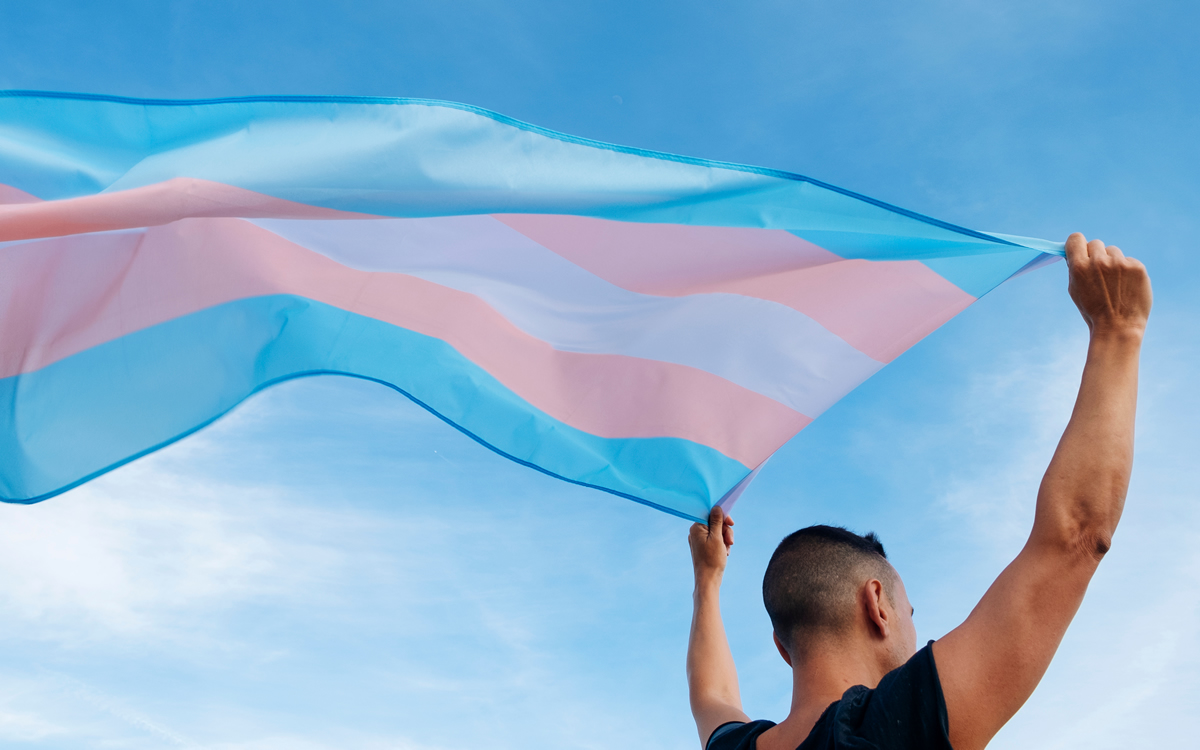Opinions
Love songs re-imagined as LGBT standards
‘Universal Love’ arrives in time for Pride season, June weddings


‘Universal Love’ album arrives just in time for Pride season and June weddings.
“Birds do it, bees do it/Even educated fleas do it,” enthused Cole Porter, in his 1928 hit “Let’s do it,” “…let’s fall in love.”
Ninety years later, hetero or LGBTQ, following Porter’s exhortation, we’re still, madly, exuberantly, falling in love. Nothing celebrates and nourishes love and romance more than music – from Beatles tunes to soul classics to Broadway musical standards. What couple hasn’t spoken of “our song?”
I felt the ping of youthful first love, when after hearing Van Morrison sing “Brown Eyed Girl,” the girl I was with told me, “you’re my brown eyed girl.”
Yet, many of us who are queer often feel disconnected when listening to songs. Frequently, the music we hear – whether contemporary pop, classic rock or showbiz tunes — is addressed primarily to a hetero audience. Love songs to women are sung by men. Women sing love songs to men. Artists, even some queer artists, often use the pronoun “you” rather than a same-sex pronoun in a song.
Once, a woman and I heard Van Morrison sing “Crazy Love.” It’s a fab song! I love Van the Man! But, it was surreal for us, two women on a date, to hear a guy, sing “she give me love, love, love, love, crazy love.” Though, lovely, something gets lost in translation, when you encounter this disconnect.
In the age of marriage equality, where are the queer-friendly songs – the ones you can dance to without being a pronoun contortionist?
Don’t despair! Love conquers all. As Bob Dylan memorably sang, “The Times They Are a-Changin.” Just in time for spring, wedding and Pride season, a new EP “Universal Love -Wedding Songs Reimagined” has been released. The LGBTQ-friendly album features six queer and straight artists covering popular standards. MGM Resorts International funded the album of same-sex wedding anthems. Between 20 to 30 percent of the nuptials at MGM’s 15 hotels in Las Vegas are gay weddings, MGM International Resorts chief executive Jim Murren told The New York Times.
In a nod to how LGBTQ-sympatico the cultural landscape has become, all of the songs’ publishers gave permission for the music’s lyrics to be changed on “Universal Love.”
Most indicative of the changing times, on “Universal Love,” Dylan who was awarded the Nobel Prize in Literature in 2016 for his iconic lyrics, sings a queer version of the 1929 Great American Songbook standard “She’s Funny That Way.” Some of us Dylan aficionados are a bit cynical because he has just come out with a collection of whiskeys called Heaven’s Door. Yet, props to Dylan, for his work on this album. In a nod to queer love, Dylan records the standard as “He’s Funny That Way.” Dylan jumped at the chance to be a part of “Universal Love,” Rob Kaplan, the album’s producer told The New York Times. “It wasn’t just ‘yes, I’ll do this,’…It was ‘hey, I have an idea for a song.”
Valerie June’s version of queer playwright, songwriter, and actor Noel Coward’s 1932 song “Mad About the Boy” takes you back to the days of camp and big bands. Then, a gay version of the song written by Coward was never performed because of homophobia. It’s a pleasure to hear June, a woman, sing this standard as “Mad About the Girl.”
On the album, Kesha does a knock-out rendition of Janis Joplin’s “I Need a Man to Love” (recast as “I Need a Woman to Love). Kele Okereke beautifully recasts the Temptations classic “My Girl” as “My Guy,” and St. Vincent does a kick-ass version of the Crystals’ 1963 hit “And Then He Kissed Me” (morphed into “And Then She Kissed Me”).
For the EP, Ben Gibbard of Death Cab for Cutie revamps the Beatles’ classic “And I Love Her” as “And I Love Him.” As so often happens, the straight artists who sing in “Universal Love” became supportive of marriage equality because their queer family members or friends wanted to marry. Gibbard joined the same-sex marriage bandwagon because his sister is a lesbian. “When my sister got married, it was everything that my parents — and I — could have ever expected from a wedding ceremony and more,” Gibbard wrote in “The Daily Beast” in 2012.
Another new album “Instant Love” features women singing love songs to other women. Listening to Irma Thomas sing “Crazy Love” on “Instant Love” is breathtaking.
Our world is filled with problems from wars to hate to poverty. Yet, let’s take a moment to celebrate queer, “crazy” love.
Kathi Wolfe, a writer and poet, is a regular contributor to the Blade.

The racist felon in the White House has sunk to what many people consider a new low, with his posting the disgusting depiction of the Obamas on his social media site. The depths to which he will sink would be considered unfathomable to many. But there is nothing we should think him incapable of. With this latest post, and refusal to apologize, I have to question the principles and decency of anyone, who still in any way, is willing to support him.
I once thought to give people taken in by his lies and carnival barker routine, the benefit of the doubt. I had the benefit of always knowing Trump was a liar and slimeball, having met him years ago in New York. I understood he learned well at the feet of his mentor, Roy Cohn, who was one of the more disgusting figures in New York politics. But not everyone knew that history. But now, after his behavior and actions, during the first year of his second term, I will not give the benefit of the doubt to anyone. If you still stand with the felon, you are a person with no principles, or decency, yourself. If you still support him you are standing with a man who first glorified the murder of a VA nurse, Alex Pretti, in Minneapolis, calling him a domestic terrorist. A man who said the ICE agents who did it were just doing their job. He did the same when they murdered Renee Good in cold blood, calling her a ‘domestic terrorist.’ He supported his agents acting like the Gestapo when taking a five-year-old boy into custody on his front stoop.
The felon went to Davos and in a stunning attack on our allies, claimed the men and women in their military never joined us on the front lines in Afghanistan, insulting all those who fought, and died, with our troops. He was either too dumb to know, or chose to disregard, that Article 5, a critical clause in the NATO pact, which means an armed attack on one member of the alliance will be treated as an attack on all members, was only invoked once in NATO’s history, and that was after the Islamist terrorists attacked the U.S. on Sept. 11, 2001.
He is destroying our country, and all our credibility around the world. He bows down to Putin and other despots. He clearly wants to be King of our country, and now an Emperor in the eyes of the world, as he threatens Greenland, and threatens to attack numerous other countries.
The problem those sycophants have, is I believe the people of the United States will finally understand he is destroying what is best in their lives. They will rise up and depose him; they will do it with their votes. Many of those who believed his lies and promises, are now seeing him as the “Emperor with no clothes.” He lied to them, and fooled enough of them, to win the election. They are waking up to the fact he is more senile than they thought Biden was, and clearly much less intelligent. They are seeing him for the grifter he is and finding out he cares not a bit for them, or their welfare. He clearly couldn’t care less that their grocery prices are going up, their rents are going up, their heating costs are going up, and for some, their healthcare costs are tripling. None of that bothers him in the least. He cares more about getting gift planes from Qatar, selling crypto coins, seeing Melania make money on a weird so-called documentary, and giving tax breaks to his rich friends and corporations.
The American people have fought a revolution before. We fought a king and won. This revolution may look different from that, and from the French Revolution. We may man/woman the barricades but will do so without guns. We will win with our votes.
The wealthy like Jeff Bezos, and others who see themselves as American nobility, corporate and media giants, who think the felon will make them even richer if they kneel before him, will in the long run be very disappointed. He has some power for a few more years, but even that will be curtailed when Democrats take back Congress in January 2027.
Peter Rosenstein is a longtime LGBTQ rights and Democratic Party activist.

I was a “chubby” kid. A “husky” kid. Horrible terms that still make me cringe. Food issues stem through the family tree. I remember hearing a family member vomit when I was in elementary school; the residual scraps left floating in the toilet. I tried sticking my finger down my throat as a teen — an easy purge after a buffet binge. “Easy” being a sick way of looking at such a violent act to oneself, but the swiftness of an occasional act turning to addiction is frighteningly simple.
I was in my early 20s when I went on another diet in a series of crash diets, but this one hit different. I barely ate and worked out intensely each day. I decided to reward myself at the end of the week with a large pizza and breadsticks. Devouring a whole pizza (and more) was not new to me. I could down an alarming amount of food and hit the pillow in a haze. I didn’t know about nutrition, calories, or balance for many years to come. The meal went down the toilet, and I resumed my starvation diet. The calorie deficit pushed me closer to addiction’s ledge, and the hunger sent me over.
The sporadic binge turned to several a week — running to the local country store for a smattering of chips, candy, soda, honey buns, cookies, anything to fill me up. Soon, it was a regular appointment, arranging a home buffet to mindlessly stuff my body for hours ‘til I knelt over the ceramic bowl.
The binge-n-purge cycle turned twice daily. If I couldn’t binge at home in private, I would gorge at buffets or in my car — throwing up in restaurants, grocery stores, lobby restrooms. I lived in a house with a septic tank at the start of my illness. I clogged the tank, causing vomit to rise to the surface of the soil. Fearing further damage, I started throwing up in trash bags, collecting them in large bins, and driving them to public toilets to dispose of them. This went on for seven years, all through college, internships, and my first corporate job.
The older man I was with was losing himself at the same time, falling deeper into the abyss of severe depression he’d battled lifelong. We saw the best in each other at the start, and the worst by the demise. His bouts of darkness were beyond my repair, no matter how hard I tried to tackle the impossible fix. How is a 21-year-old supposed to convince a 46-year-old to seek treatment, talk him down from suicidal tendencies, get him to understand people love him? I couldn’t navigate it, and food seemed to be the one thing in my control.
It also became my reward and my excuse to treat myself in the face of any stress or accomplishment. He wants to kill himself: binge. I aced a test: binge. Work was rough: binge. Food was all I lived for. Friends, family, love all took a backseat. I was ruled by a hidden hunger I kept secret from nearly everyone, though my emaciated frame didn’t go unnoticed.
I was productive through the battle, working full time, graduating college summa cum laude, landing a solid job and moving up the ladder. All common addict attributes. Bulimia consumed me ‘til I was nearly 30 — four years after splitting from my first love, two years after he killed himself, and three years into a relationship with the man who would become my husband, and later my ex-husband.
They say the difference between privacy and secrecy is that privacy is about respect, whereas secrecy has shame attached. So, let’s drop the shame and the secrets held far too long. It’s been 12 years since I spent my days, nights, and thousands of dollars gorging and purging for hours. Twelve years since I was face down in a toilet at my own will.
I was a TV producer for a decade, booking more than 15,000 segments through the years. I often received pitches for February’s Eating Disorder Awareness Month and made a point to share these stories every year. Still, every pitch and every spokesperson I booked was with a woman. The stigma surrounding body dysmorphia in men continues despite men representing up to 25 percent of people with eating disorders, with members of the LGBTQ+ community at a higher risk, according to the National Association of Anorexia Nervosa and Associated Disorders. Men are also more likely to not recognize a problem, and their cases tend to be more severe by the time they see a doctor.
Living in secret and hiding is not living. It’s shame-based and the ultimate red flag that something needs to change. It will haunt you ‘til you are unrecognizable to yourself and everyone around you. You don’t need to share your story with the world, but opening up to someone is a crucial step in recovery and healing. Living in lies and maintaining deception is the heaviest of burdens
Addiction is blinding. You are unable to see the joys, the freedoms, and opportunities awaiting when you’re solely focused on soothing your addiction’s rage. Living for the fix pushes every other interest out of focus. When you start to release the devil on your back, you make room for wings to spread and space to fly into passions suffocated far too long.
It’s taken a lot of work, therapy, reflection and learning. Not to say I’m recovered, not to say I’m healed. I’ll forever have this devil on my back. It’s about learning to quiet his rage, soothe his anxiety, and ensure his safety and love. It’s a lifelong path of healing more with each day, each year.
And there is always hope. Even in the deepest depths of despair and isolation and ‘I’ll-never-get-better-ness.’ Whatever your circumstances, those tinges of hope are worth clinging to. They’ll carry you through.
I don’t know where I’ll be next year, let alone a future once so clear. And I’m okay. You’re okay. The other side isn’t perfect. Nothing is. But what a gift to make it there and experience life unshackled from your ghost.
There’s so much to see.
Kyle Ridley is an Emmy Award winning journalist with more than two decades in print and television.
Opinions
Why trans suffering is more palatable than trans ambition
We are most readily accepted when framed as victims

In the current media and political climate, stories of trans suffering move quickly. Stories of trans ambition do not.
A trans teenager denied healthcare. A trans woman attacked on public transit. A trans man struggling with homelessness. These narratives circulate widely, often accompanied by solemn op-eds, viral posts, and carefully worded statements of concern. The pain is real. The coverage is necessary. But there is a quieter pattern beneath it: trans people are most readily accepted when they are framed as victims—and most resisted when they present themselves as agents with desire, confidence, and upward momentum.
This distinction has sharpened in recent years. As anti-trans legislation has proliferated across statehouses and election cycles have turned trans lives into talking points, the public script has narrowed. Trans people are legible as objects of harm, but far less comfortable to many audiences as subjects of ambition. Survival is tolerated. Aspiration is destabilizing.
The reason suffering travels more easily is not mysterious. Pain reassures the audience. It positions trans people as recipients of concern rather than participants in competition. A suffering subject does not threaten status hierarchies; they confirm them. Sympathy can be extended without requiring a recalibration of power, space, or expectations. In this framing, acceptance remains conditional and charitable.
Ambition disrupts that arrangement. A trans person who wants more than safety—who wants money, authority, visibility, creative control, or institutional influence—forces a different reckoning. Ambition implies permanence. It implies entitlement. It implies that trans people are not passing through society’s margins but intend to occupy its center alongside everyone else.
You can see this discomfort play out in real time. When trans people speak about wanting success rather than safety, the response often shifts. Confidence is scrutinized. Assertiveness is reframed as arrogance. Desire is recoded as delusion. The language changes quickly: “unstable,” “narcissistic,” “out of touch,” “ungrateful.” In public discourse, confidence in trans people is frequently treated not as a strength, but as a warning sign.
Media narratives reinforce this dynamic. Even ostensibly positive coverage often relies on redemption arcs that center suffering first and ambition second—if at all. Success is framed as overcoming transness rather than inhabiting it. A trans person can be praised for resilience, but rarely for dominance, excellence, or command. Achievement must be softened, contextualized, and made reassuring.
This is especially visible in cultural reactions to trans people who refuse modesty. Trans figures who express sexual confidence, professional competitiveness, or political authority routinely face backlash that their cis counterparts do not. They are accused of being “too much,” of asking for too much space, of wanting too much too fast. The underlying anxiety is not about tone; it is about proximity. Ambition collapses the safe distance between observer and observed.
Politically, this preference for suffering over ambition is costly. Movements anchored primarily in pain narratives struggle to articulate futures beyond harm reduction. They mobilize sympathy but have difficulty sustaining leadership. A politics that can only argue from injury is perpetually reactive, always responding to the next threat rather than shaping the terrain itself.
This matters in a moment when trans rights are no longer debated only in cultural terms but in administrative, legal, and economic ones. Influence now depends on institutional literacy, long-term strategy, and the willingness to occupy decision-making spaces that were never designed with trans people in mind. Ambition is not a luxury; it is a prerequisite for durability.
Yet ambition remains suspect. Trans people are encouraged to be grateful rather than demanding, visible rather than powerful, resilient rather than authoritative. Even within progressive spaces, there is often an unspoken expectation that trans people justify their presence through pain rather than through competence or vision.
This is not liberation. It is containment.
A society that can tolerate trans suffering but recoils at trans ambition is not offering equality; it is managing discomfort. It is willing to mourn trans deaths but uneasy about trans dominance, trans leadership, or trans desire that does not ask permission. It prefers trans people as evidence of harm rather than as evidence of possibility.
None of this is an argument against documenting suffering. That work remains essential, particularly as legal protections erode and violence persists. But suffering cannot be the only admissible register of trans life. A politics that cannot imagine trans people as ambitious cannot sustain trans people as free.
Ambition does not negate vulnerability. Desire does not erase harm. Wanting more than survival is not ingratitude—it is the baseline condition of citizenship. The question is not whether trans people deserve ambition. The question is why it remains so unsettling when they claim it.
Until that discomfort is confronted, acceptance will remain conditional. Sympathy will remain cheap. And trans futures will continue to be negotiated on terms that stop just short of power.
Isaac Amend is a writer based in the D.C. area. He is a transgender man and was featured in National Geographic’s ‘Gender Revolution’ documentary. He serves on the board of the LGBT Democrats of Virginia. Contact him on Instagram at @isaacamend




















